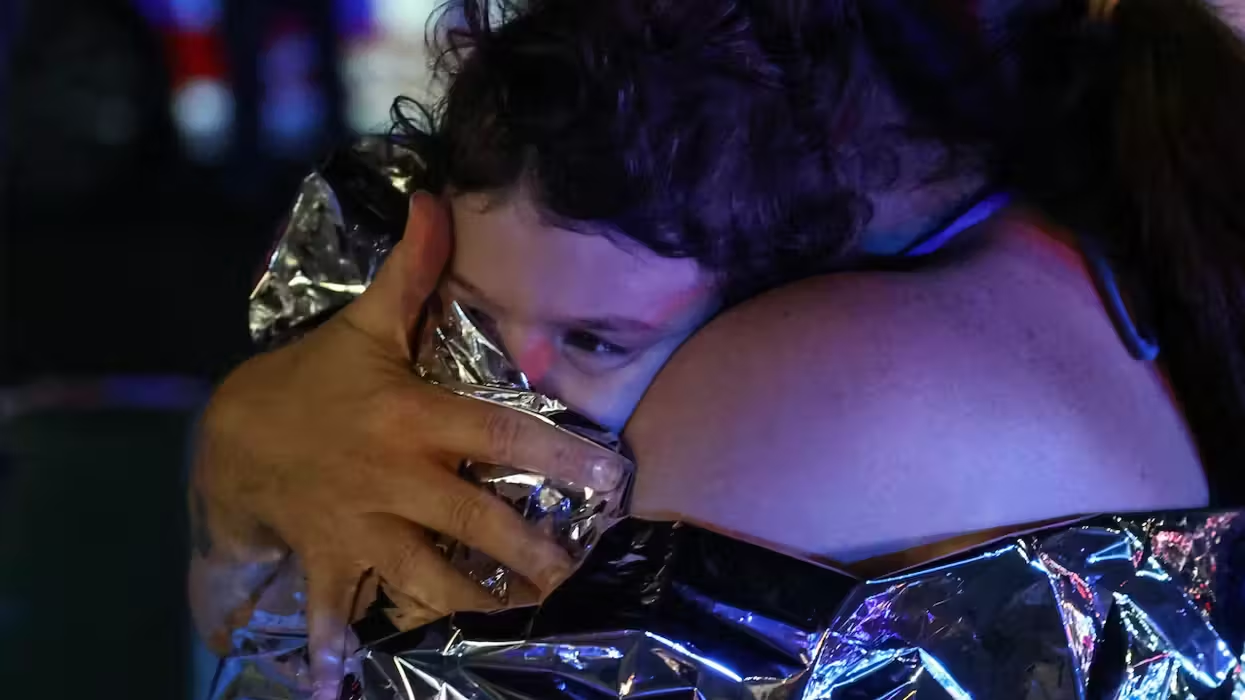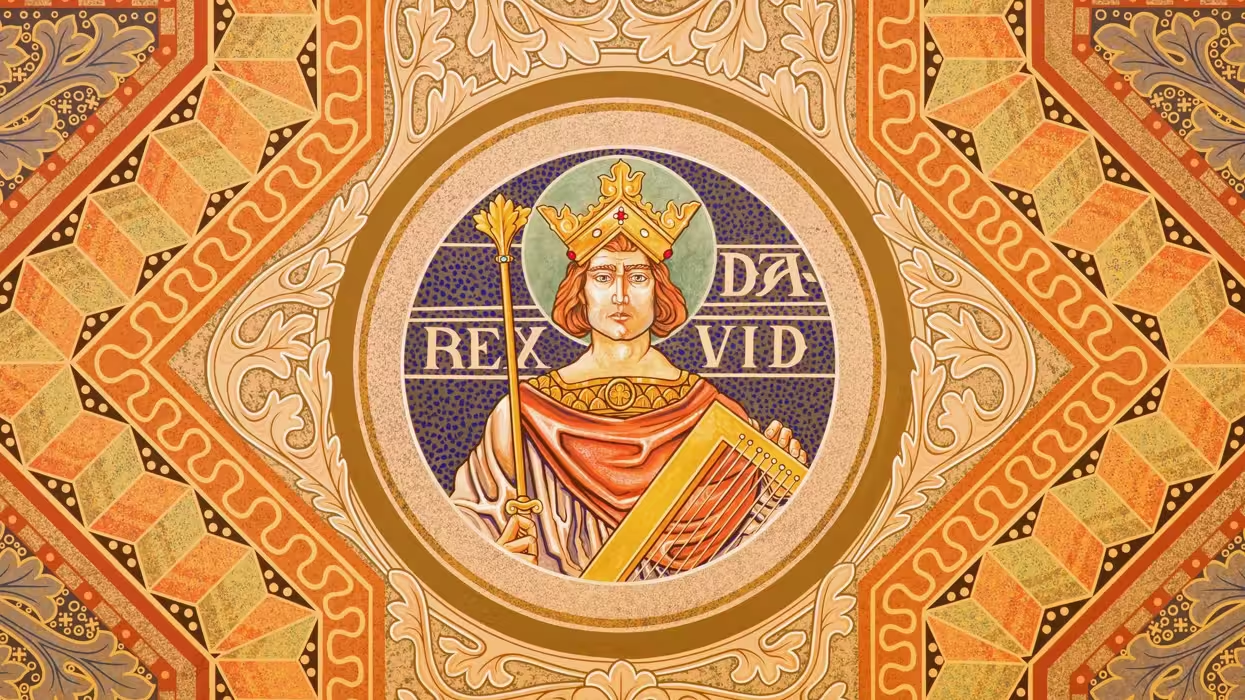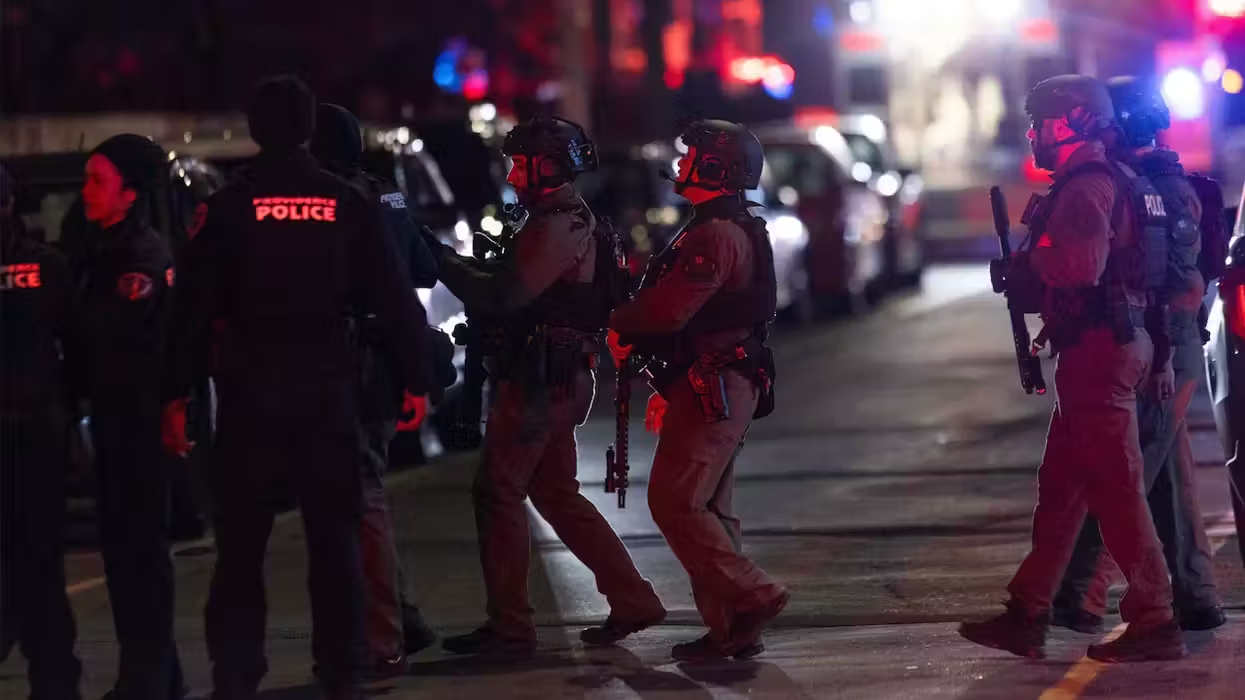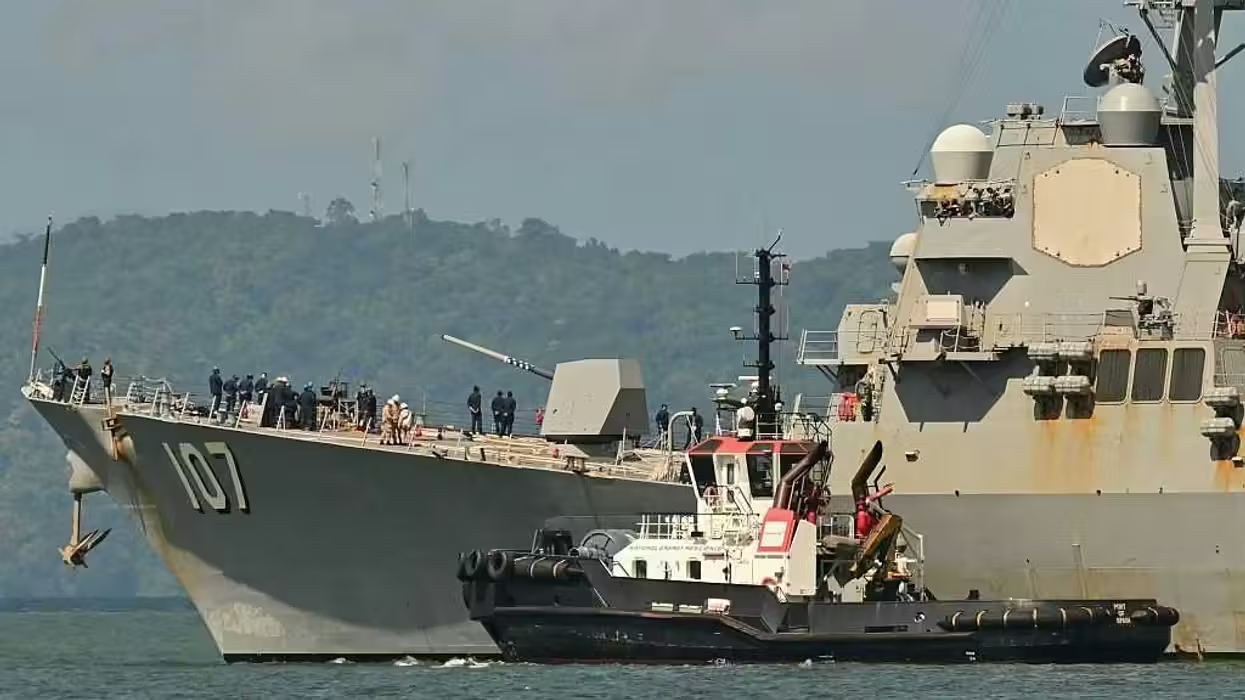
© 2025 Blaze Media LLC. All rights reserved.
Iraq’s transformation was undercut by naïve faith not in democracy but rather in diplomacy.
This column is part of our series reflecting on the Iraq War, which began ten years ago this week.
 President George W. Bush (Photo: Pablo Martinez Monsivais/Associated Press
President George W. Bush (Photo: Pablo Martinez Monsivais/Associated Press
This week marks the tenth anniversary of the start of the Iraq war. Professors and pundits widely condemn the decision to liberate Iraq. History will show the critics to be wrong.
Announcing the start of military operations, George W. Bush declared, “We have no ambition in Iraq except to remove a threat and restore control of that country to its own people.” He succeeded.
Overshadowing the war, of course, was the faulty intelligence which provided some of its justification. Not only the Central Intelligence Agency, but also the British, Germans, French, Russians, United Nations and even the Iraqi president’s closest henchmen got the WMD question wrong. Intercept phone calls between or interrogate generals who believe they have biological and nuclear materials and no lie can be detected. Saddam had out-bluffed them all. Nevertheless, the decision to liberate Iraq was correct. Pre-war intelligence might have been wrong, but the documents seized upon Saddam’s fall leave no doubt. As soon as sanctions collapsed—and both UN graft and French and Russian greed insured they would—Saddam planned to use his oil income to acquire the nuclear and biological weapons he pretended he had.
Under Saddam Hussein’s leadership, Iraq had invaded two countries and, with its SCUD missiles, attacked many more. To allow him to reconstitute his weapons programs would have been to play Russian roulette with international security and American lives. And while critics diminish Saddam’s association with terrorism, they are dishonest. While the 9/11 Commission concluded that Saddam had no operational links to the terrorist attacks on New York and Washington, to deny Iraqi links to a wide array of anti-American terrorist groups is to deny a reality documented in years of State Department Patterns of Global Terrorism reports. March 16 marked the 25th anniversary of Saddam’s chemical bombardment of the Kurdish town of Halabja. He bragged openly of subsidizing suicide bombers in the years preceding his capture.
 Former Iraqi President Saddam Hussein had an iconic mustache, but he eventually wore his facial hair as a beard. (Photo: AP)
Former Iraqi President Saddam Hussein had an iconic mustache, but he eventually wore his facial hair as a beard. (Photo: AP)
And to characterize Saddam Hussein as a great secularist—the lesser of two evils when America is today confronted by Islamist radicals—is also to rewrite history. After the 1991 liberation of Kuwait, Saddam found religion. Allahu Akbar, “God is Great,” found its way onto every Iraqi flag, reportedly in Saddam’s own handwriting. To hear Saddam’s Iraq described today as a haven for liberated women reflects historical amnesia. As Saddam worked to co-0pt religious radicals, women fell into his crosshairs. When I lived in Iraq before the war, educated women were terrified: Saddam’s Fedayeen were kidnapping female professionals, accusing them of moral laxness, and summarily beheading them.
Operation Iraqi Freedom was not the story of one decision, but many. The President overruled the impulses of the State Department, Central Intelligence Agency, and many in the Pentagon when he concluded that it was not enough simply to replace one dictator with another. Democracy rather than dictatorship, Bush argued, best protected America’s national security interests. Culture was not the problem, he recognized. After all, one-in-six Iraqis had fled Saddam’s dictatorship. When they settled in Europe or America, they had no difficulty embracing democracy. To suggest that Arab despots enhance American security is to rewrite history to forget five Arab-Israel wars; the proxy conflicts Gamal Abdul Nasser sponsored across the region; and Saddam Hussein’s invasion of Kuwait.
Those who doubt the efficacy of democracy should look no further than northeast Asia. President Harry S. Truman faced the same questions regarding Korea that Bush did in Iraq. Critics accused Truman of embroiling America in open-ended war, ignoring the advice of both generals and statesmen, and losing touch with reality. They said democracy was alien to Korean culture. Time proved them wrong. Certainly, democracy did not come quick to South Korea, but Koreans ultimately defeated the dictatorial impulse of their political class. Today, juxtaposition of nuclear North Korea with democratic South Korea shows the value of Truman’s policy. South Korea does not sponsor terrorism nor threaten the United States with nuclear Armageddon.
Certainly, there were mistakes, but freedom was not among them. Iraq’s transformation was undercut by naïve faith not in democracy but rather in diplomacy. The State Department proved too willing to accept Syrian and Iranian pledges of non-interference. Even General David Petraeus, while commanding the 101st Airborne in Mosul, put his faith in Syrian goodwill, bragging to visiting American officials about the increase in cross-border trade which he had facilitated. Too many American officials believed the canard the Iraq’s neighbors sought a stable, secure Iraq.
Bush also erred by courting the United Nations. To win Turtle Bay’s ephemeral support, the White House agreed to define U.S. forces formally as an occupying rather than liberating power. Overnight, Iraqi democrats became collaborators. To appease Paris, Berlin, Moscow, and Beijing, the Bush team justified insurgent rhetoric.
UN influence proved caustic in other ways: The White House accepted a UN recommendation to base elections on party slates rather than on constituencies. That so many American diplomats refuse to recognize the wisdom of our own Founding Fathers’ approach to elections remains a mystery. By instead imposing a system upon Iraq in which politicians are more accountable to party leaders than constituents, the Coalition Provisional Authority (CPA) increased ethnic nationalism and sectarian populism.
Perhaps the greatest mistake was reconstruction: Not only in Foggy Bottom, but also in Turtle Bay and Brussels, too many officials accept uncritically the notion that development is a responsibility, and that aid brings security. American taxpayers spent billions of dollars to reconstruct Iraq (and, for that matter, Afghanistan). The U.S. Agency for International Development (USAID) measures not success, but rather money expended. Few programs succeeded, but USAID did succeed in spending billions. Southern Iraq and Kurdistan today are booming, but their success is not the result of the CPA and U.S. aid agencies, but rather despite them.
I first arrived in Iraq in September 2000—two and a half years before the war—to teach history in Iraqi Kurdish universities. I return in July 2003, as a political adviser seconded from the Pentagon. I have returned to Iraq at least every six months since them, most recently last fall. Skyscrapers dot Kurdish cities today, where 13 years ago, refugees squatted convinced Saddam might invade at any moment. As the sun sets, trucks traverse highways where none dared travel a decade ago. Cell phone towers dot a landscape once marked by gallows and mass graves. There were mistakes, but choosing freedom was not among them. Liberty is nothing for which to apologize or feel ashamed.
Michael Rubin is a resident scholar at the American Enterprise Institute. He is currently onboard the USS Kearsarge with the 26thMarine Expeditionary Unit as they head toward the Middle East.
Related Contributions:
Want to leave a tip?
We answer to you. Help keep our content free of advertisers and big tech censorship by leaving a tip today.
Want to join the conversation?
Already a subscriber?
more stories
Sign up for the Blaze newsletter
By signing up, you agree to our Privacy Policy and Terms of Use, and agree to receive content that may sometimes include advertisements. You may opt out at any time.
Related Content
© 2025 Blaze Media LLC. All rights reserved.
Get the stories that matter most delivered directly to your inbox.
By signing up, you agree to our Privacy Policy and Terms of Use, and agree to receive content that may sometimes include advertisements. You may opt out at any time.






